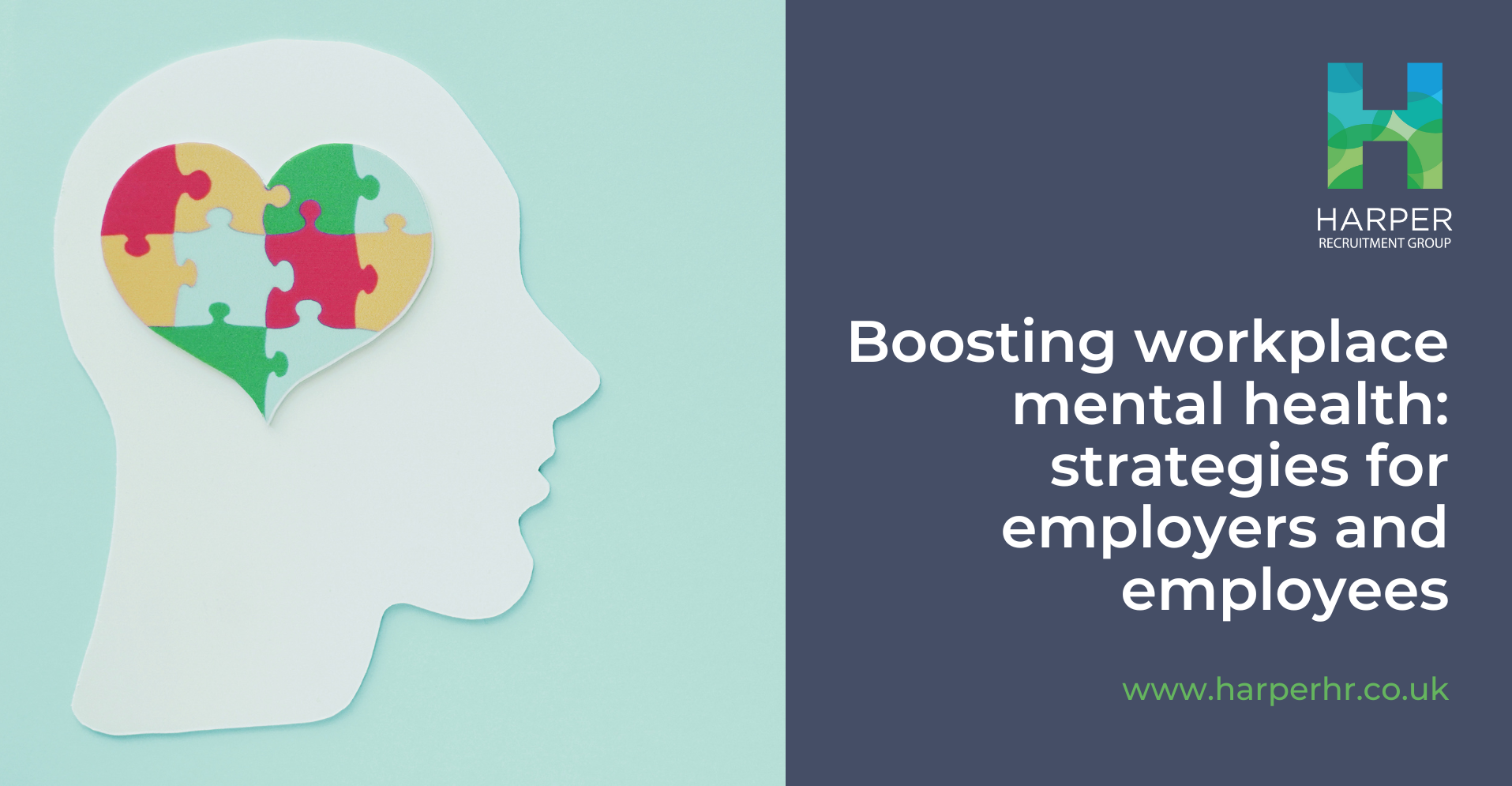Search for that
new job role...
Boosting workplace mental health: strategies for employers and employees

At any given time, 1 in 6 working-age adults experience symptoms associated with mental ill health. Not only does this have a huge personal impact on individuals, it also has severe repercussions for employers including increased staff turnover, absence, lost productivity and decreased motivation. In fact, statistics show that poor mental health has led to 72 million working days lost and costs of £34.9 billion each year. To combat this, we have compiled a list of top tips for promoting good mental health in the workplace.
Know the signs
Employers and colleagues should look out for signs of mental health struggles in the workplace. These signs may include increased absences, a decline in productivity, arriving late or generally acting out of character. Early intervention can make a big difference, so do your research.
Invest in training
Providing adequate training doesn’t just boost productivity and performance - it also makes employees feel like a valued part of a supportive work environment, boosting their morale and work satisfaction. Ensure your team members know how to set clear priorities, establish realistic goals and create a manageable schedule to decrease stress levels and foster a healthy working life.
Establish work-life boundaries
You can prioritise your mental health by discouraging excessive overtime, skipping breaks or working outside of hours to prevent burnout and stress. If you work from home, set up a dedicated workspace to create physical boundaries which will make it easier for you to disconnect after your working day ends - establishing these boundaries can be challenging at first, but it can preserve your wellbeing and improve both your work and personal life in the long run.
Promote seeking help
Encourage employees and colleagues to seek professional help when needed by providing easy access to resources such as Employee Assistance Programmes (EAPs), local mental health counselling services or crisis helplines. Ensure these details are kept in a place where it can be accessed when needed and remind everyone regularly.
Create a supportive culture
Foster a culture that values wellbeing and inclusion - by creating a safe space, you can help team members feel comfortable when discussing any concerns. Speak openly if you are comfortable doing so, and provide training for managers to help them recognise signs of mental health issues and offer appropriate support.
_________________________________
If you need extra support at the moment, here is where you can find some help:
- Contact your GP
- Samaritans: 116 123
- SANEline: 0300 304 7000
- CALM: 0800 58 58 58
- Shout: Text SHOUT to 85258



